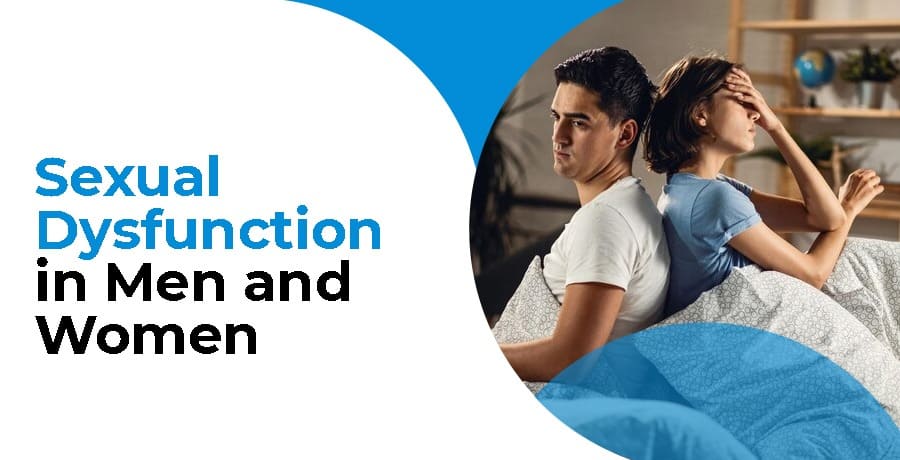
Sexual dysfunction is a prevalent issue (commonly known as a sex problem/sexual problems) that affects both men and women, and it refers to a wide range of difficulties that men and women experience in their sexual lives. It's important to note that sexual dysfunction can have a combination of physical, psychological, and emotional causes.
Sex problems in women include desire disorders, arousal disorders, orgasmic disorders, sexual pain disorders, and hormone deficiency.
- Desire disorders refer to a lack of interest in sex or a decreased desire compared to before.
- Arousal disorders involve the inability to feel sexual responses in the body or difficulty staying sexually aroused.
- Orgasmic disorders can manifest as an inability to achieve orgasm or experiencing pain during orgasm.
- Sexual pain disorders involve experiencing pain during or after sexual intercourse.
- Hormone deficiency particularly decreased estrogen levels, can also affect sexual desire in women.
On the other hand, sexual problems in men are the most well-known form of erectile dysfunction, which refers to the difficulty in obtaining or maintaining an erection.
- Desire disorders in men can involve a loss of interest in sexual activity or decreased desire.
- Problems with ejaculation can include premature ejaculation (ejaculating too early) or delayed ejaculation (taking longer than normal or not ejaculating at all). Additionally, low testosterone levels can contribute to sexual problems in men.
It is not common for couples to handle sexual problems at some point in their relationship. Both men and women experience a decrease in hormone levels as they age, which can lead to a decrease in sexual desire. Female hormones fluctuate during pregnancy, postpartum, and breastfeeding, while menopause can cause a decline in sexual desire and vaginal dryness.
Fortunately, there are various treatment options available to address Sex problems in women.
- If lack of desire is the issue, changing your usual routine can be helpful.
- Trying to have sex at different times of the day or experimenting with different sexual positions might reignite the spark. It is also important to have open communication with your partner about your preferences and desires.
- Discussing your likes and dislikes can help create a more fulfilling sexual experience for both of you.
- Arousal disorders, particularly in women, can be addressed using vaginal creams or sexual lubricants to alleviate dryness.
- If menopause is a factor, discuss the possibility of taking estrogen or using an estrogen cream.
- For men experiencing arousal disorders, having an open conversation with their partners to explore ways to improve arousal, such as engaging in more foreplay or discussing fantasies, can enhance sexual experiences.
- Pain during sex can be a distressing issue for both men and women, but there are treatment options available.
- For women, hormone replacement therapy, different sexual positions, or the use of vaginal lubricants can help alleviate discomfort.
- Men and women may also find it helpful to empty their bladder before engaging in sexual activity or taking a warm bath.
Book an appointment with Dr. Anup Dhir today to discuss your sex problems and find the right treatment options for you. Don't let sexual dysfunction affect your quality of life any longer. Take the first step towards a fulfilling and satisfying sexual experience.

